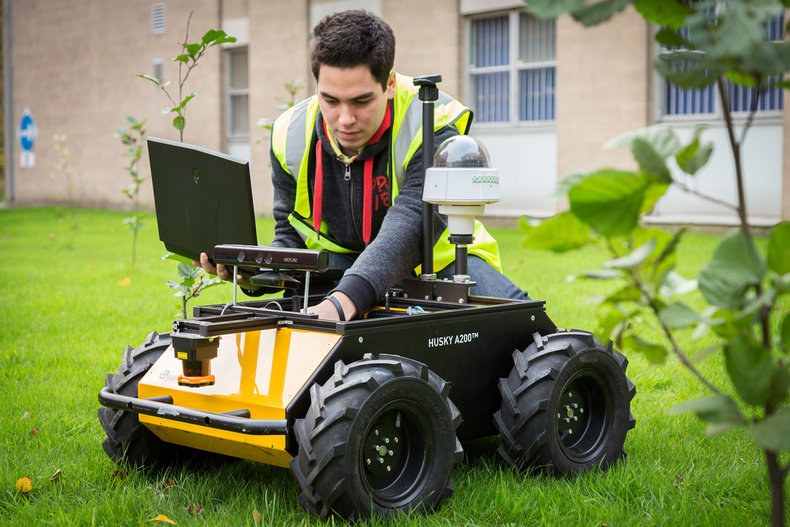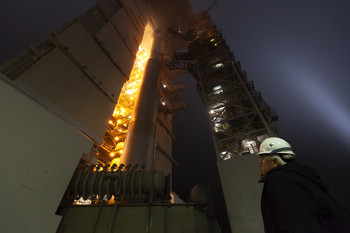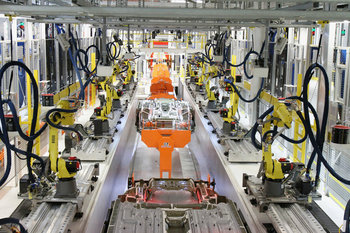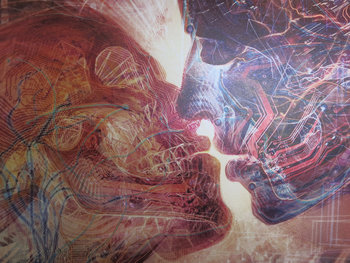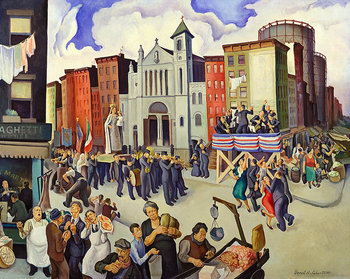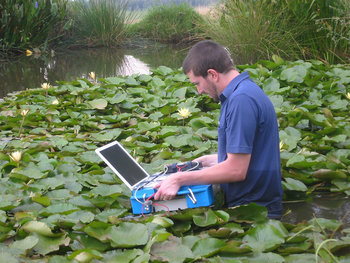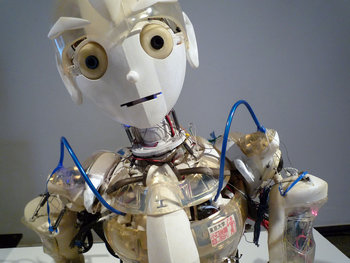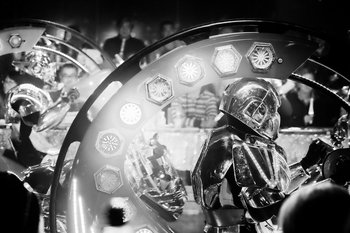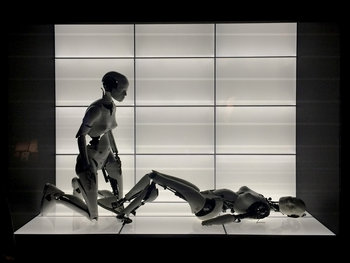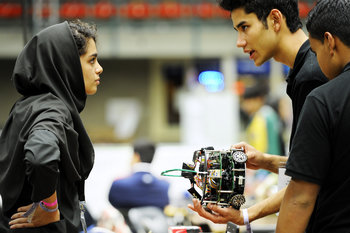|
| |
Robots are machines that have some level of autonomous functionality. Both robots and machines may be automated using an external controller such as a manufacturing system. Robots are autonomous in that they do things independently of external commands. For example, a robotic arm may know not to move if it senses a human standing nearby as a safety precaution. |
Type | | Robot Definition (1) | A machine that has autonomous functions. | Robot Definition (2) | A machine that acts independently of external controls. | Machine Definition | A physical tool that is controlled by users or external automation. | Related Concepts | |
Information Technology
This is the complete list of articles we have written about information technology.
If you enjoyed this page, please consider bookmarking Simplicable.
© 2010-2023 Simplicable. All Rights Reserved. Reproduction of materials found on this site, in any form, without explicit permission is prohibited.
View credits & copyrights or citation information for this page.
|
